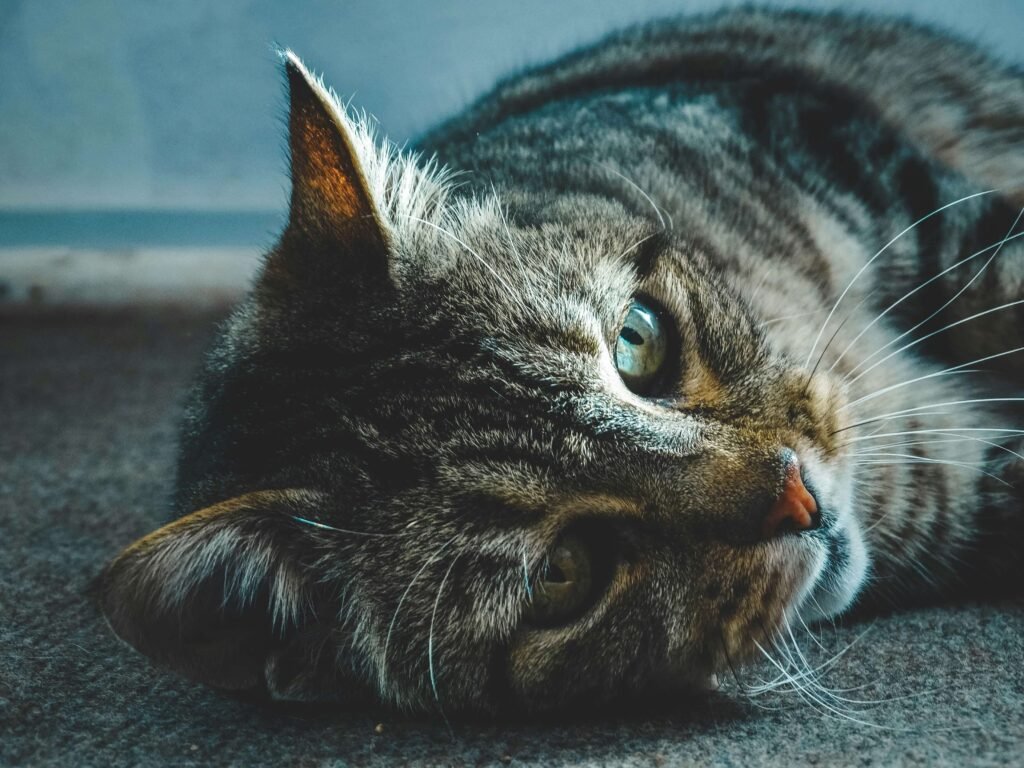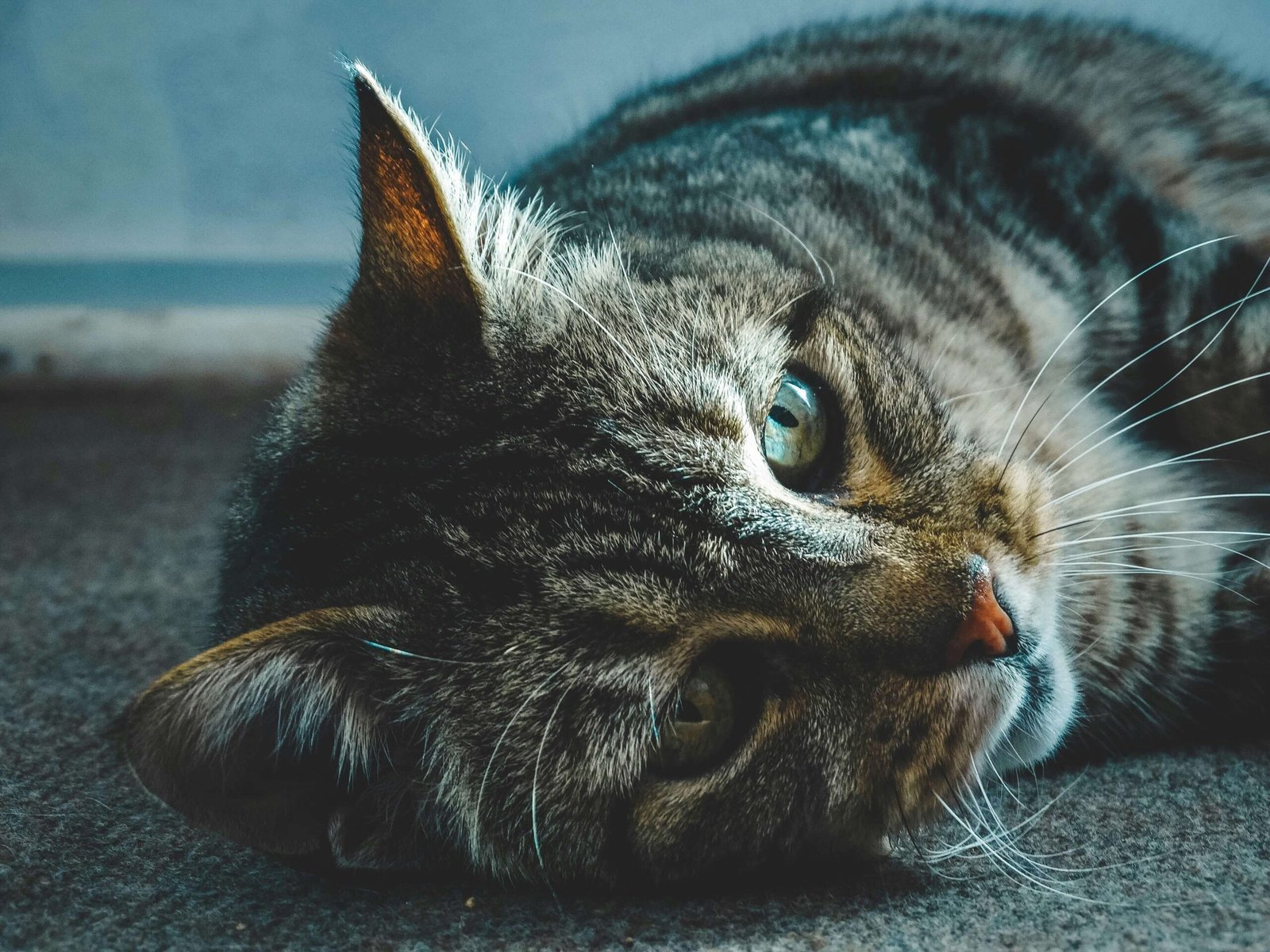The Morning Serenade: When Your Cat Wakes You Up Meowing
There’s something uniquely charming yet slightly chaotic about waking up to the sound of your cat meowing. Whether it’s a gentle purr or an insistent cry, our feline companions have a way of making their presence known, especially in the early hours of the morning. For many cat owners, this daily ritual is both endearing and perplexing. Why do cats choose dawn as their prime time for communication? And how can we decode their meows to better understand their needs? In this blog post, we’ll explore the fascinating world of cats waking us up with their vocalizations, offering insights and tips to help you navigate these moments with grace and understanding.
Why Do Cats Meow in the Morning?
Cats are naturally vocal creatures, and their meows serve as a form of communication. However, when they wake you up with their meowing, it’s often tied to specific reasons. Understanding these motivations can help you respond appropriately and strengthen your bond with your furry friend. Here are some common explanations:
Hunger : Cats often associate mornings with mealtime, especially if you’ve established a feeding routine.
Attention : Your cat may simply want to interact with you after a long night of solitude.
Boredom : Without stimulation, cats may seek ways to entertain themselves, and waking you up is one option.
Natural Instincts : Cats are crepuscular, meaning they are most active during dawn and dusk.
Health Concerns : Persistent or unusual meowing could indicate discomfort or illness that requires attention.
While each cat is unique, these factors often play a role in why your feline companion feels the need to serenade you at sunrise. By identifying the root cause, you can address their needs effectively.
How to Respond to Your Cat’s Morning Meows
When your cat wakes you up meowing, it’s important to respond in a way that reinforces positive behavior while addressing their needs. Ignoring them entirely might seem like a solution, but it can sometimes lead to frustration—for both you and your cat. Instead, consider these strategies:
Establish a Consistent Routine : Feed your cat and spend time with them at the same time every morning.
Provide Mental Stimulation : Leave toys or puzzles out overnight to keep your cat entertained.
Ignore Attention-Seeking Behavior : If your cat meows for attention, avoid reinforcing it by giving in immediately.
Create a Cozy Environment : Ensure your cat has a comfortable sleeping area to reduce nighttime restlessness.
Consult a Veterinarian : If the meowing seems excessive or unusual, seek professional advice to rule out health issues.
By implementing these approaches, you can create a harmonious morning routine that benefits both you and your cat. Remember, patience and consistency are key to managing this behavior.
Check this guide 👉Why Is My Cat Meowing So Loudly? Best 7 Expert Behavior Tips
Check this guide 👉Why Does My Cat Not Meow? Best 7 Expert Care Tips!
Check this guide 👉How to Stop a Cat in Heat from Meowing: Best 7 Expert Tips!

Reasons for Morning Meowing | Tips to Address the Behavior |
|---|---|
Hunger | Feed your cat at consistent times. |
Attention | Spend quality time with your cat daily. |
Boredom | Provide interactive toys or puzzles. |
Natural Instincts | Embrace their crepuscular nature. |
Health Concerns | Schedule regular vet check-ups. |
Decoding Your Cat’s Meows: What Are They Trying to Say?
Every meow from your cat carries a message, and learning to interpret these sounds can deepen your understanding of their needs. While cats communicate in various ways, their vocalizations often fall into distinct categories. Here’s what your cat might be trying to convey:
Short, High-Pitched Meows : Typically a greeting or request for attention.
Long, Drawn-Out Meows : May indicate impatience or urgency.
Low, Grumbling Meows : Could signal discomfort or dissatisfaction.
Chirps and Trills : Often a sign of excitement or curiosity.
Silent Meows : Sometimes used as a playful or affectionate gesture.
By paying close attention to the tone, frequency, and context of your cat’s meows, you can better respond to their needs. This not only strengthens your bond but also ensures your cat feels heard and understood.
Preventing Excessive Morning Meowing
If your cat’s morning meows are becoming overwhelming, there are proactive steps you can take to minimize this behavior. Prevention is often more effective than correction, so consider these tips:
Adjust Feeding Times : Offer a small meal or snack before bedtime to curb hunger-related meowing.
Increase Daytime Activity : Engage your cat in play sessions during the day to tire them out.
Use Automated Toys : Invest in toys that activate automatically in the morning.
Create a Safe Space : Ensure your cat has access to a quiet, comfortable area at night.
Gradual Training : Reward your cat for calm behavior in the morning to encourage positive habits.
With consistent effort, you can reduce excessive meowing and create a peaceful start to your day. Remember, every cat is different, so tailor these strategies to suit your pet’s personality.
Understanding Your Cat’s Emotional State Through Meowing
Cats use meowing as a way to express their emotions, and paying attention to these vocal cues can help you better understand their well-being. By observing patterns in their behavior, you can identify whether they’re feeling happy, anxious, or in need of something specific. Here are some emotional states your cat might be communicating:
Contentment : Soft, rhythmic meows often indicate happiness or relaxation.
Anxiety : Rapid, high-pitched meows may suggest stress or fear.
Excitement : Loud, repetitive meows can signal anticipation or eagerness.
Loneliness : Persistent meowing at night might reflect a desire for companionship.
Frustration : Sharp, abrupt meows could mean your cat is upset or confused.
By tuning into these emotional signals, you can respond with empathy and care, ensuring your cat feels secure and understood. Remember, every meow is a window into their world.
Tips for Creating a Cat-Friendly Morning Routine
Establishing a morning routine that works for both you and your cat can make waking up to their meows a more pleasant experience. A structured approach helps set expectations and reduces unwanted behavior. Consider these tips for crafting a cat-friendly morning schedule:
Start with Playtime : Engage your cat in a quick play session to burn off energy.
Offer Breakfast Gradually : Serve their meal in stages to mimic hunting behavior.
Provide Fresh Water : Ensure their water bowl is clean and filled before leaving the house.
Use Positive Reinforcement : Reward calm behavior with treats or affection.
Set Boundaries : Gently discourage jumping on furniture or excessive vocalizations.
A well-planned routine not only benefits your cat but also creates a smoother start to your day. Consistency is key to making this system effective.
Common Mistakes to Avoid When Dealing with Morning Meows
While addressing your cat’s morning meowing, it’s easy to fall into habits that may unintentionally reinforce unwanted behavior. Being mindful of these common pitfalls can help you manage the situation more effectively. Here are some mistakes to steer clear of:
Feeding Immediately : Giving food right after meowing can teach your cat to associate noise with rewards.
Punishing Your Cat : Scolding or yelling can increase stress and damage your bond.
Ignoring Health Issues : Dismissing unusual meowing without consulting a vet can lead to missed diagnoses.
Skipping Mental Stimulation : Failing to provide toys or activities can leave your cat bored and restless.
Changing Routines Frequently : Inconsistent schedules can confuse your cat and exacerbate morning meowing.
Avoiding these mistakes ensures that your efforts to manage morning meows are productive and compassionate. With patience and awareness, you can foster a peaceful environment for both you and your feline companion.
Frequently Asked Questions About Cats Waking You Up Meowing
Why does my cat meow so much in the morning?
Cats often meow in the morning due to hunger, attention-seeking, or natural instincts.
Is it normal for my cat to wake me up every day?
Yes, it’s common, but excessive meowing may indicate an underlying issue.
How can I stop my cat from waking me up?
Establish a routine, provide stimulation, and address any potential health concerns.
Should I feed my cat immediately when they meow?
Avoid feeding them right away, as it may reinforce the behavior. Stick to a schedule.
When should I consult a veterinarian?
If the meowing becomes persistent, loud, or unusual, seek professional advice.
Embracing the Morning Meows: Building a Stronger Bond with Your Cat
Waking up to your cat’s meowing may not always align with your ideal morning routine, but it’s a testament to the deep connection you share. By understanding their needs, responding thoughtfully, and implementing preventive measures, you can transform these moments into opportunities for bonding and growth. Remember, cats thrive on consistency and care, and with a little patience, you can create a harmonious start to each day. So the next time your feline friend greets you with a meow, embrace it as a reminder of the joy and companionship they bring to your life.
Do Cats Have Taste Buds? Best 7 Expert Tips! – Discover how cats experience flavors and why their taste is so unique.
Do Dogs Have Taste Buds? Best 7 Expert Tips! – Discover how dogs experience taste, their preferences, and what it means for their diet and health.
Can Cats Taste Sweet? Best 7 Expert Tips! – Discover why cats can’t taste sweetness, how it affects their diet, and tips to keep them healthy and happy.
Can Dogs Taste Sweet? Best 7 Expert Tips! – Discover how dogs perceive sweetness, which foods are safe, and tips to manage their sweet cravings responsibly.





